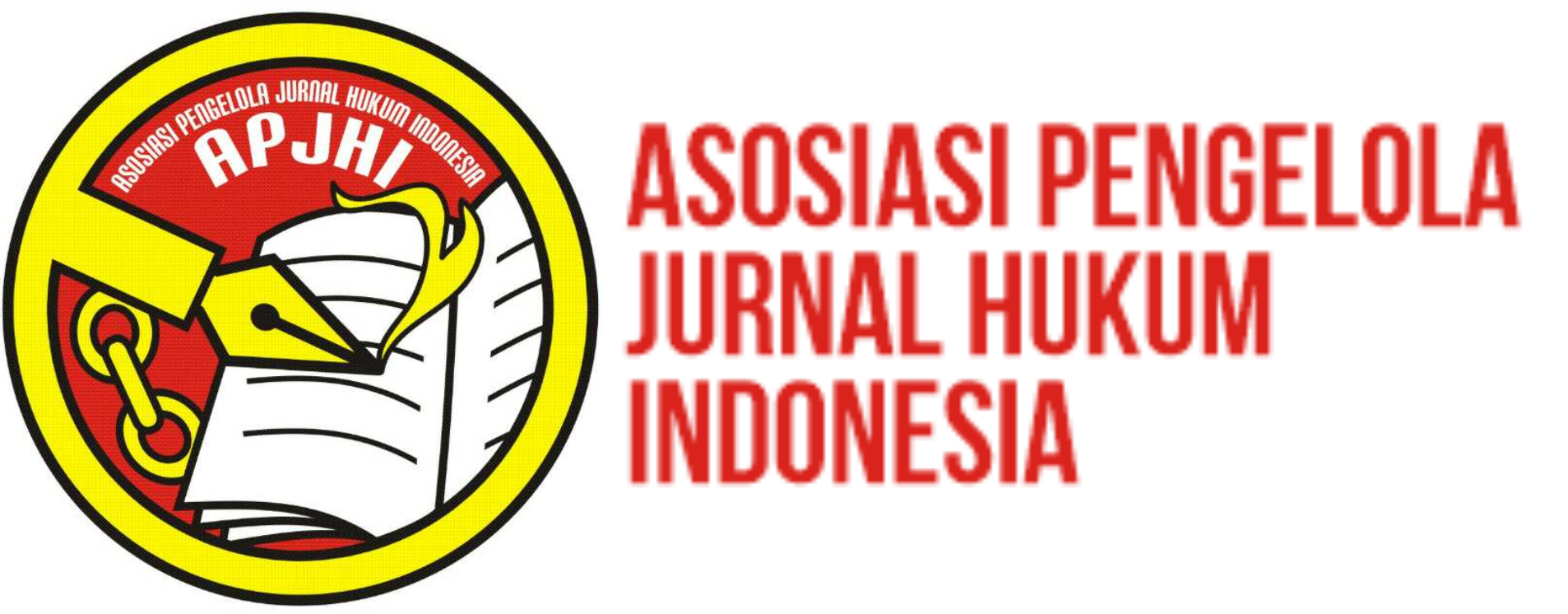PELAKSANAAN SIDANG PERADILAN PIDANA SECARA ONLINE PADA MASA PANDEMI COVID-19 TERHADAP PEMBUKTIAN DALAM PERSIDANGAN (Studi Penelitian di Pengadilan Negeri Lhokseumawe)
Abstract
Full Text:
PDF (Bahasa Indonesia)References
Abdulkadir, Muhammad, 2004. Hukum dan Penelitian Hukum, PT. Citra Aditya Bakti, Bandung.
Adami Chazawi, 2002. Pelajaran Hukum Pidana, Raja Grafindo Persada, Jakarta.
Amiruddin, 2003. Pengantar Metode Penelitian Hukum, PT. Raja Grafindo Persada, Jakarta.
Amiruddin dan Zaenal Azikin, 2004. Pengantar Metode Penelitian Hukum, Raja Grafindo Persada, Jakarta.
Bambang Sunggono, 2001. Metodelogi Penelitian Hukum, Raja Grafindo Persada, Jakarta.
Barda Nawawi Arief. 2010. Bunga Rampai Kebijakan Hukum Pidana. Prenada Media Group. Jakarta.
Leden Merpaung, 2005. Asas Teori Praktik Hukum Pidana, Sinar Grafik, Jakarta.
Mardjono Reksodiputro, 1994. Hak Asasi Manusia Dalam Sistem Peradilan Pidana: Kumpulan Karangan Buku Ketiga, Pusat Pelayanan Keadilan Dan Pengabdian Hukum Lembaga Kriminologi Universitas Indonesia, Jakarta.
Muladi, 1995. Kapita Selekta Sistem Peradilan Pidana, Badan Penerbit UNDIP, Malang.
M. Yahya Harahap, 2006. Pembahasan Permasalahan Dan Penerapan KUHAP (Pemeriksaan Sidang Pengadilan, Banding, Kasasidan Peninjauan Kembali), Sinar Grafika, Jakarta.
Nasution, Bahder Johan. 2008. Metode Penelitian Ilmu Hukum. CV. Mandar Maju, Bandung.
R. Soesilo. 1996. Kitab Undang-Undang Hukum Pidana (KUHP) Serta Komentar-Komentarnya Lengkap Pasal Demi Pasal. Politeia. Jakarta.
Romli Atmasasmita, 1996, Sistem Peradilan Pidana: Perspektif eksistensialisme dan abolisionalisme, Putra abardin, Bandung.
Soerjono Soekanto dan Sri Mamudji, 2011. Penelitian Hukum Normatif Suatu Tinjauan Singkat, Raja Grafindo Persada, Jakarta.
Tolib Effendi, 2013. Sistem Peradilan Pidana: Perbandingan Komponen Dan Proses Sistem Peradilan Pidana Di Beberapa Negara, Pustaka Yustisia, Yogyakara.
Zainuddin Ali, 2010. Metode Penelitian Hukum, Sinar Grafika, Jakarta.
Aryantha Wijaya, A. A. Ngurah Oka Yudistira Darmadi, 2020, “Kekuatan Nilai Kesaksian Dalam Perkara Pidana Melalui Media Visual Teleconference”, Jurnal Kertha Wicara. Volume 09 Nomor 10 Tahun 2020. Fakultas Hukum Universitas Udayana, Bali.
Dewi Rahmaningsih Nugroho, S. Suteki, 2020, “Membangun Budaya Hukum Persidangan Virtual (Studi Perkembangan Sidang Tindak Pidana via Telekonferensi”), Jurnal Pembangunan Hukum Indonesia. Volume 2, Nomor 3, Tahun 2020. Fakultas Hukum Universitas Diponegoro, Jawa Tengah.
Mardjono Reksodiputro, 1993, “Sistem peradilan pidana Indonesia (melihat kepada kejahatan dan penegakan hukum dalam batas-batas toleransi)”; Pidato Pengukuhan Penerimaan Jabatan Guru Besar Tetap Dalam Ilmu Hukum Pada Fakultas Hukum Universitas Indonesia, 1993.
Nur Akmal Razaq. 2020. “Legalitas Persidangan Perkara Pidana Secara Elektronik Di Masa Pandemi Covid – 19 Dalam Pespektif Hukum Pidana,” Jurnal Inovasi Penelitian .Volume 1 No. 3: 1227-1230. Program Studi Hukum, Fakultas Ilmu Sosial Ilmu Politik, Universitas Tidar, Mangelang.
Republik Indonesia, Undang-Undang Dasar Tahun 1945, Pasal 1, Amandemen IV
Undang-Undang Nomor 1 Tahun 46 Tentang Kitab Undang-Undang Hukum Pidana.
Undang-undang Nomor 8 tahun 1981 tentang Hukum Acara Pidana, Rancangan Kitab Undang-undang Acara Pidana
Undang-undang Nomor 13 tahun 2006 tentang Perlindungan Saksi dan Korban
Undang-Undang Nomor 19 Tahun 2016 tentang Perubahan Atas Undang-Undang Nomor 11 Tahun 2008 tentang Informasi dan Transaksi Elektronik.
Agus Sahbani, Problematika Sidang Pidana Daring Saat Pandemi, Hukum Online.com,Rabu10Juni2020,link:https://www.hukumonline.com/berita/baca/lt5edfd188dad3f/problematika-sidang-pidanadaring-saat-pandemi?page=3, Di akses pada 25 Agustus 2021.
DOI: https://doi.org/10.29103/jimfh.v5i2.7141
 Article Metrics
Article Metrics
 Abstract Views : 273 times
Abstract Views : 273 times
Refbacks
- There are currently no refbacks.
Copyright (c) 2022 Fakraiza ., Muhammad Nur, Harun Harun

This work is licensed under a Creative Commons Attribution-ShareAlike 4.0 International License.
Universitas Malikussaleh
E-ISSN : 2798-8457



